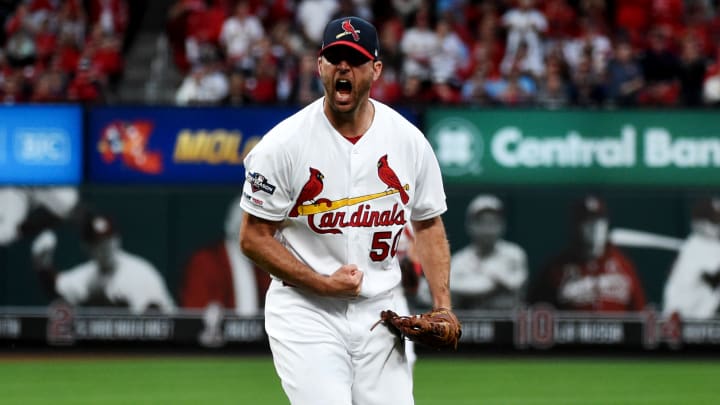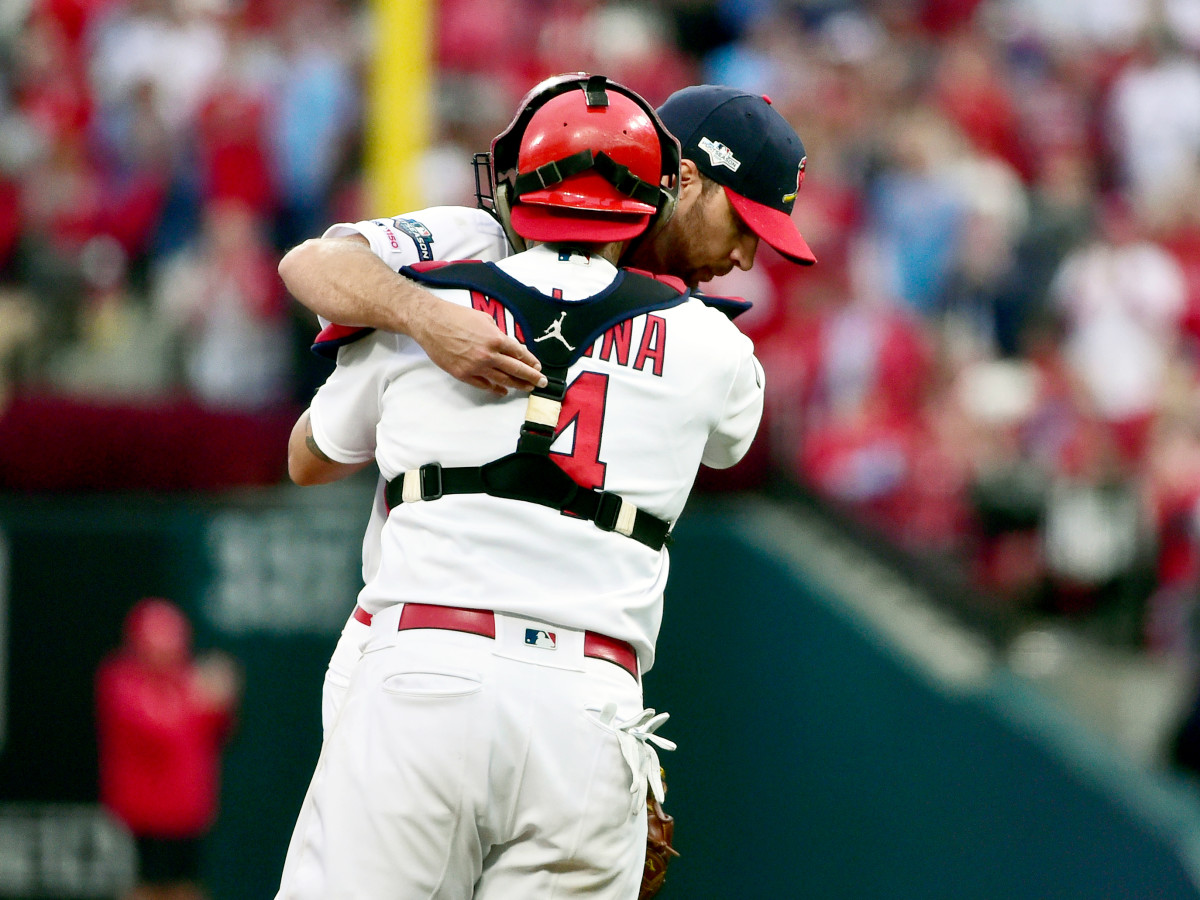As MLB Skews Younger, 38-Year-Old Adam Wainwright Continues to Shine


Adam Wainwright took the Busch Stadium mound Sunday for perhaps his last start with the Cardinals, their postseason fate hanging in the balance of a crucial Game 3 against the Braves.
The veteran righthander gave St. Louis everything it could’ve asked of a 38-year-old who’s had multiple right elbow surgeries and logged over 2,100 innings in his big-league career.
Wainwright’s performance was masterful under any circumstances, but the game’s importance and the current era’s preference of youth over experience made what he did Sunday all the more remarkable. His final line: 7 ⅔ innings, no runs, four hits, two walks, eight strikeouts, 120 pitches.
If it were his farewell to the St. Louis faithful, who’ve watched his 14-year career in awe, jaws dropped as low as the break of his signature “Uncle Charlie” curveball, everyone would be satisfied with the way he went out.
Until, of course, the Braves mounted a comeback in the ninth, plating three runs off closer Carlos Martinez, all with two outs. The go-ahead, two-run single from Adam Duvall, who also delivered the decisive two-run homer in Game 2, was too crushing a blow to recover for the Cardinals.
Instead of the expected uplifting ride into the sunset, with Yadier Molina embracing his 6-foot-7 batterymate in the eighth inning before he walked off the mound, the credits rolled to an unsettling tune. This ending, however, was no less fitting.

In the not-so-distant past, when having four-plus reliable starting pitchers was a must for success, Wainwright’s brilliant outing Sunday would’ve been all the Cardinals needed to see to extend him for another two years, especially after his second-half resurgence. Sure, he would’ve been 40 when it was over, but little doubt would’ve been cast at whether he could keep pitching. Not after he went 5-1 with a 2.97 ERA in six September starts (36 ⅓ innings).
He’d answered durability questions by completing at least seven innings and allowing one run or less in six regular season starts, three of which came in his final six outings. Add in how important he’s been as a resource for 23-year-old ace Jack Flaherty and rookie righthander Dakota Hudson in their breakout years, and the Cardinals would find even more value in keeping Wainwright around.
But there’s no guarantee that Wainwright will be back in a Cardinals uniform next season, just as it’s uncertain he’ll be back at all. There have never been more affordable, major-league ready players waiting in the minor leagues, and they’ve never been more valuable to organizations, which are trying to assemble the best young core of talent to win a championship before they have to pay up. Efficiency, more specifically cost efficiency, has replaced sentimentality, forcing veterans to take lesser contracts or pushing them out of the game completely long before they reach Wainwright’s 38 years.
If Adam Wainwright continues to pitch with this type of control with four pitches, the #Braves could be in trouble vs. #STLCards pic.twitter.com/kPGW3DeV06
— ByMattMartell (@ByMattMartell) October 6, 2019
Look no further than the visitor’s dugout on Sunday afternoon for examples. Braves third baseman Josh Donaldson, a former MVP whose 6.1 bWAR this year ranks second among NL third basemen, had to settle for a one-year, $23 million contract with Atlanta entering his age 33 season because teams didn’t want to pay an aging position player $15-20 million a year for the next three to five seasons. Lefthander Dallas Keuchel, the 2015 AL Cy Young winner, had to wait until after the draft in June for teams to offer him a contract because they’d rather have an extra early-round draft pick than a 31-year-old to help them win now. The Braves signed him to a one-year, $13 million deal, and he was their postseason Game 1 starter.
This isn’t to say baseball’s youth movement is a bad thing. In fact, for the most part, it’s a smart play. Atlanta rookie Mike Soroka, who turned 22 in August, will finish in the top 5 for the NL Cy Young this year after going 13-4 with a 2.68 ERA. On Sunday, Soroka stifled the Cardinals over seven innings—one run, two hits, no walks, seven strikeouts—and when the Braves’ bats finally pushed a few runs across, that was more than enough to support the righthander’s gem.
Tellingly, on Saturday, Wainwright faced an existential question from a reporter, the kind of question a professional athlete probably doesn’t want to think about.
Do you think this is the first time in your career where you’ve almost been old enough to be the father of the pitching opponent you have tomorrow?
"Do you think this is the first time in your career you've been old enough to be the father of the pitching opponent you have tomorrow?"@stltoday Hall of Famer Rick Hummel had the question of the day for 38-year-old Adam Wainwright ahead of Game 3 of the #NLDS #STLCards 😂 pic.twitter.com/mbvqBiUoER
— Corey Miller (@corey_miller5) October 5, 2019
Wainwright chuckled, dropped his head, lifted his hands and said, “No offense,” before answering the question: “I always tell these guys old players means good players. You don’t get to be an old player if you’re not a good player.”
Then, Wainwright wondered just how old the 22-year-old Soroka is.
“Yeah, I guess I could be,” Wainwright said. “It does happen. I hadn’t thought about it before now … but it probably is [the first time].”
Hopefully, for Wainwright’s sake, it won’t be the last.
